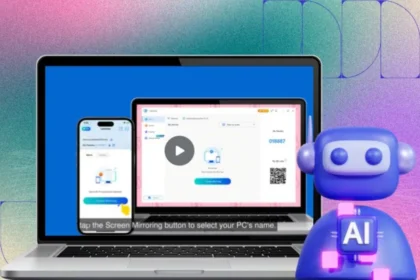Google recently unveiled new artificial intelligence features in its products. Google has started its October performance report like this; For more than 20 years, we’ve invested in machine learning and AI research, tools and infrastructure to build products that make everyday life easier and better for more people. Google teams are working around the clock on AI to bring its benefits to users in healthcare, crisis response and education.
Google Maps experienced the biggest update of artificial intelligence
Google gave the gift of the biggest artificial intelligence update to Google Maps; Among these capabilities, we can mention “Ask Maps”; This feature in Google Maps allows users to enter more conversational queries in the search bar. “Google Jamna” can give you quick answers to conversational questions.
However, Google has considered various ways to provide answers to reduce the anxiety of driving. It should be mentioned that in the new update you can use Ask Maps about this page. A new inline search bar in the list lets you ask questions like “Is the environment quiet?” bring up Generated responses, which can include images, are provided along with excerpts from the actual review and other relevant web links. Both mentioned features will be added to the Google search section in the coming months.
Google NotebookLM with AI updates
ML Notebook Service is a new name that Google has chosen for its digital notebook, which hides the concept of “Language Model” in its heart, and it is not far off to expect that from now on, we will encounter this extension in the naming of Google products.
NotebookLM is a note-taking application that uses artificial intelligence and machine learning technology to improve users’ notes. With the updated AI in the tool, you can upload PDF files, Google Docs, websites, YouTube videos and more to NotebookLM to gain new insights and dig deeper into new topics.
Google announced in October that it will now use artificial intelligence to help users find the right product. Google has also rolled out a new personalized feed of shoppable products for users, and these features will be rolling out gradually over the coming weeks in the US.
Google will now display product search results along with an AI summary of important topics when shopping. For example, if you search for “men’s winter jacket for Seattle,” AI will provide a summary of what Google believes you should consider before buying a new jacket for that particular climate.
Artificial intelligence has been added to Google search services
Before, Google users could ask their questions in new ways; Whether it’s typing a search, searching with the camera, or even humming a song. In October, Google added more updates, including helping people identify songs in the search process, buy what they see, and search by video.
For example, when people visit an aquarium, they can open the lens in the Google app and hold the shutter button to record a video of the fish and ask aloud, “Why are they swimming together?”, the video’s AI means and produces an AI overview along with useful resources from around the web. The world is in constant motion, and search can now help people understand it as it is.
Launching all Chromebooks with artificial intelligence
Google announced in October that all Chromebooks will ship with the Gemini app, and Chromebook Plus laptops will include new Google AI productivity tools like live translation, writing assistance, a recorder app, and playback.
The Samsung Galaxy Chromebook Plus is the thinnest and lightest Chromebook Plus ever and features a quick access key to access AI features.
Google’s $15 million donation to the US government
Artificial intelligence is poised to help the US public sector strengthen cybersecurity, improve data analytics, and find new ways to improve citizen services.
Google.org has awarded $15 million in new training grants to two leading public sector organizations, the Partnership for Public Service and InnovateUS, to train the US government workforce in artificial intelligence. These grants help cultivate AI leadership and talent in the federal government and provide access to AI training to more than 100,000 public sector employees in more than 30 states.
Awarding the Nobel Prize to the pioneers of Google’s artificial intelligence
The Nobel Prize was awarded to three of Google’s AI pioneers for advancing the science of AI in a way that benefits all people. Google scientist Jeff Hinton won the Nobel Prize in Physics for his pioneering work on neural networks, and Demis Hassabis and John Jumper of Google DeepMind won the Nobel Prize in Chemistry for their pioneering work with AlphaFold 2, the structure of almost all proteins known to science. predicted
RCO NEWS


















